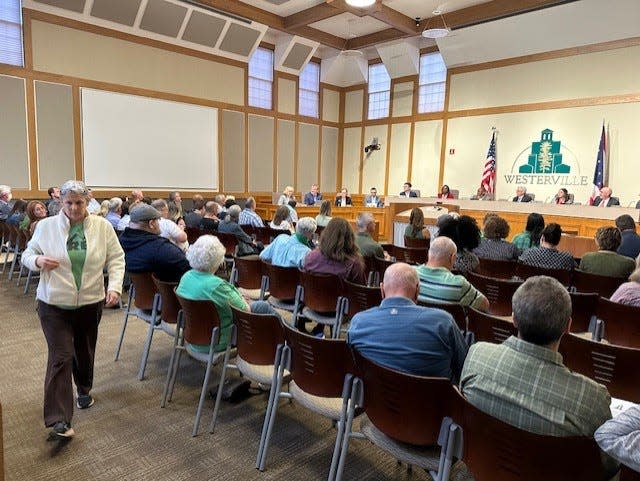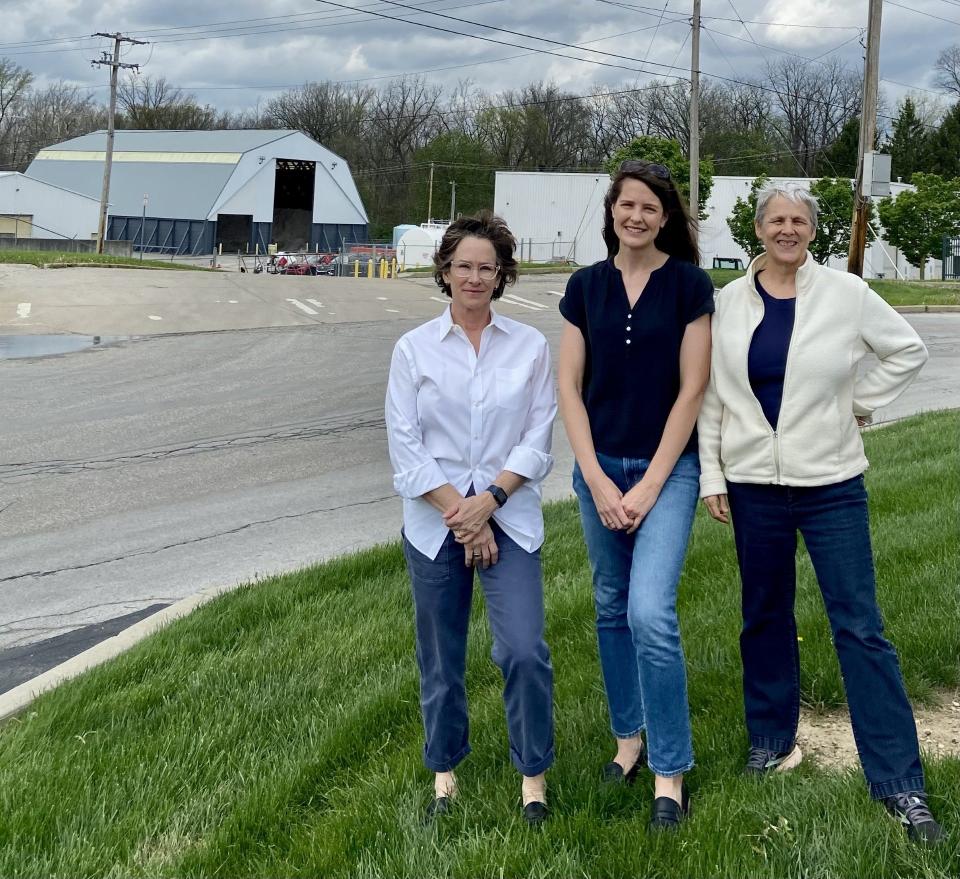Westerville council swayed by city residents' objections to plastic foam densifier machine
Brian Wilke has lived in his Westerville home for about 20 years. And until now, he said he's had few reasons to complain about city services or annoyances of suburban life.
But when he learned about the city's plans to operate a foam densifier machine near his home to recycle foam packing materials into compact bricks of plastic, he had mixed feelings.
As someone concerned about the environment, he knows that landfills are filled with plastic foam (expanded polystyrene) and that society produces far too much of it. Wilke and several of his neighbors worried not only about the environmental impact of the cups, plates and packing material, but also the mysterious machine that Westerville in January had accepted grant money for to help eliminate that type of waste.
On Tuesday night, many of Wilke's neighbors came to speak about the noise and emissions from the heat-enhanced Foam Cycle compactor. To show their opposition, they wore green shirts. And before they had a chance to speak, they received surprise news.

Their concerns had apparently been heard. By a 7-0 vote, the council voted to abandon the project.
Best remedy for the environment?
Studies show that the popular foam packing products have a lifespan of 500 years or longer. And being about 98% air, they take up critical space in landfills, preventing organic products from decomposing. The machine in Westerville would have used heat and pressure to reduce an SUV-sized mound of packing foam into a solid block that is easily transported to businesses that convert it into household products.
Many communities, including Worthington, have drop-off days during which workers collect the foam and take it for recycling elsewhere. Others are receiving grants for do-it-yourself equipment.
The Solid Waste Authority of Central Ohio previously provided a $30,000 grant for a similar machine that doesn't use heat. Hilliard has had a densifier machine for two years in a building near City Hall. There have been no concerns from residents, Hilliard spokesperson David Ball said. The grant money also required about $16,000 in startup costs for staffing.
But concerns in Westerville mounted, including its duration of operation, sharing by other communities and noise.
Hilliard receives foam products from residents in Bexley, Columbus, Delaware, Grove City and Worthington, Ball said. The city devotes about 15 hours a week to process the loads.
"The machine makes about the same noise as a lawn mower," he said.
Westerville residents invited themselves to an operation in Springfield, where they saw foam particles fill the air and heard a droning sound akin to a wood chipper.
They sent more than two dozen emails to Westerville officials.
"Sometimes it seems like they forget there is a neighborhood here," Wilke said. "My understanding is that they expect it will run four to five hours a week, which I find hard to believe, if we're taking in other communities' Styrofoam."
Nikki Ransom had other concerns: "This is bigger and more complex than getting a grant, buying a machine and having existing employees run an entire recycling and trash program in their spare time. Why should we as a community be happy to hear our City Employees seem to have this much free time?"
And she said it would be precedent-setting "for city government to initiate waste processing with no meaningful notice to the neighborhood, no controls in place, no safety investigation."
In an email to The Dispatch, SWACO said it stands by its program and safety concerns.
"It is our understanding that EPA reviewed the data on the air emissions from the Foam Cycle system and determined that air emissions are so low as to not rise to the level of regulation by the EPA."
Westerville's role
Elizabeth Eshelman Moes and her husband have an 18-month-old and 4-year-old, and she considered herself largely apolitical when it came to local issues.
"This is made me rethink political apathy," she said. "It took an almost absurd amount of time and energy" to research. "An overwhelming amount of effort.
"We were not trying to be alarmist," she said of the "green shirt" campaign. "We just wanted current, relevant data on the hazardous air pollutants produced by this equipment."
The only data received was that from an 18-year-old study.

Was it worth it?
"It's an incredibly powerful thing," Moes said.
But she still worries that the city never fully explained why it was backing out of the project, nor did it accept a public discussion, even before Tuesday's vote to disband. She also questions some of the business partnerships between the end-users of the plastic bricks and SWACO.
"I would want to know: What are the profit margins like for Eco Development and Foamcycle, both of whom are profiting off taxpayers who pay to staff these densifiers and provide the electricity/infrastructure?"
dnarciso@dispatch.com
Subscribe to our politics newsletter!
Haley BeMiller breaks down the latest in Ohio political news.

Sign up for The Scoop newsletter
This article originally appeared on The Columbus Dispatch: Westerville residents feel heard by 7-0 vote to kill foam densifier

